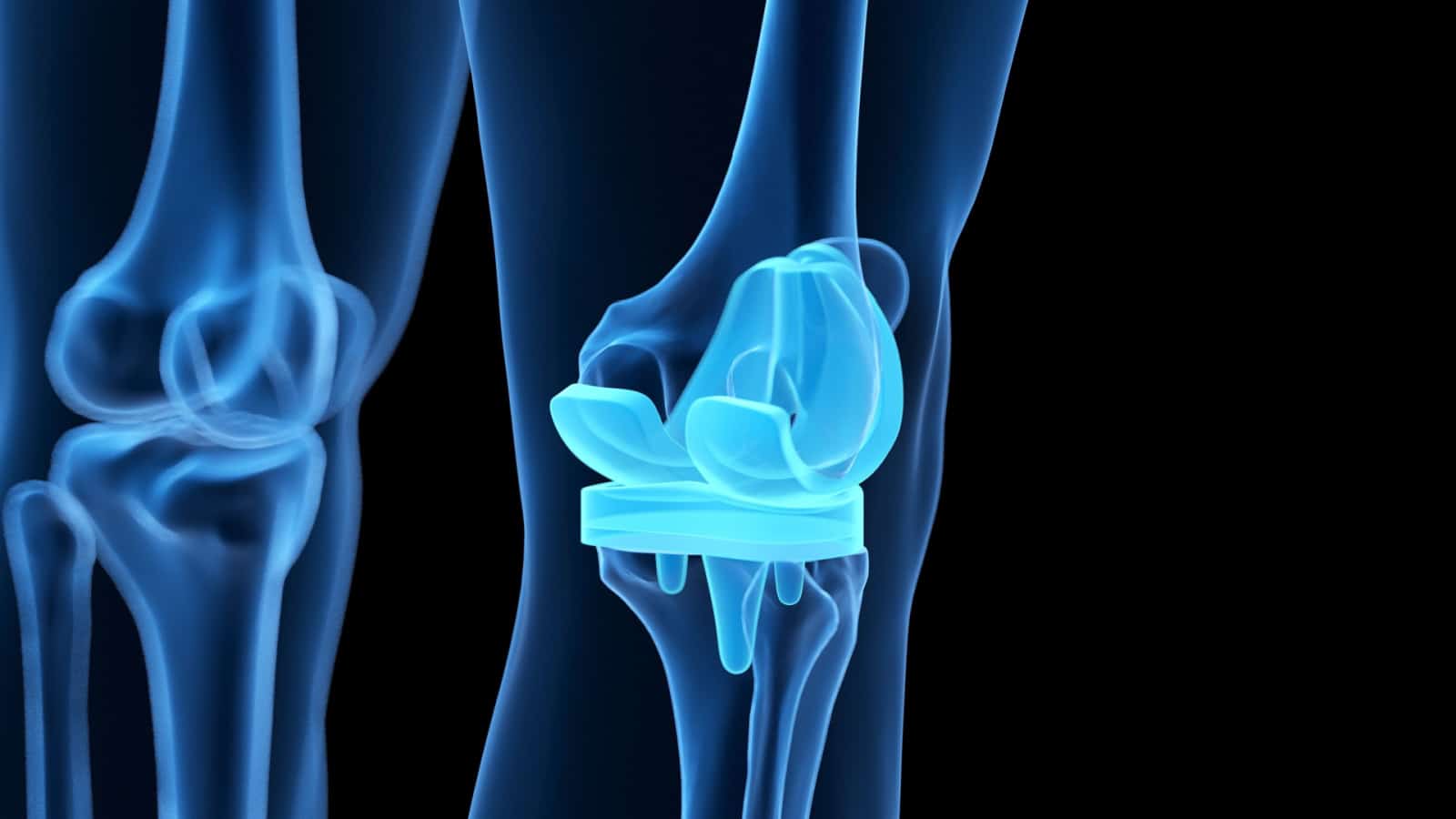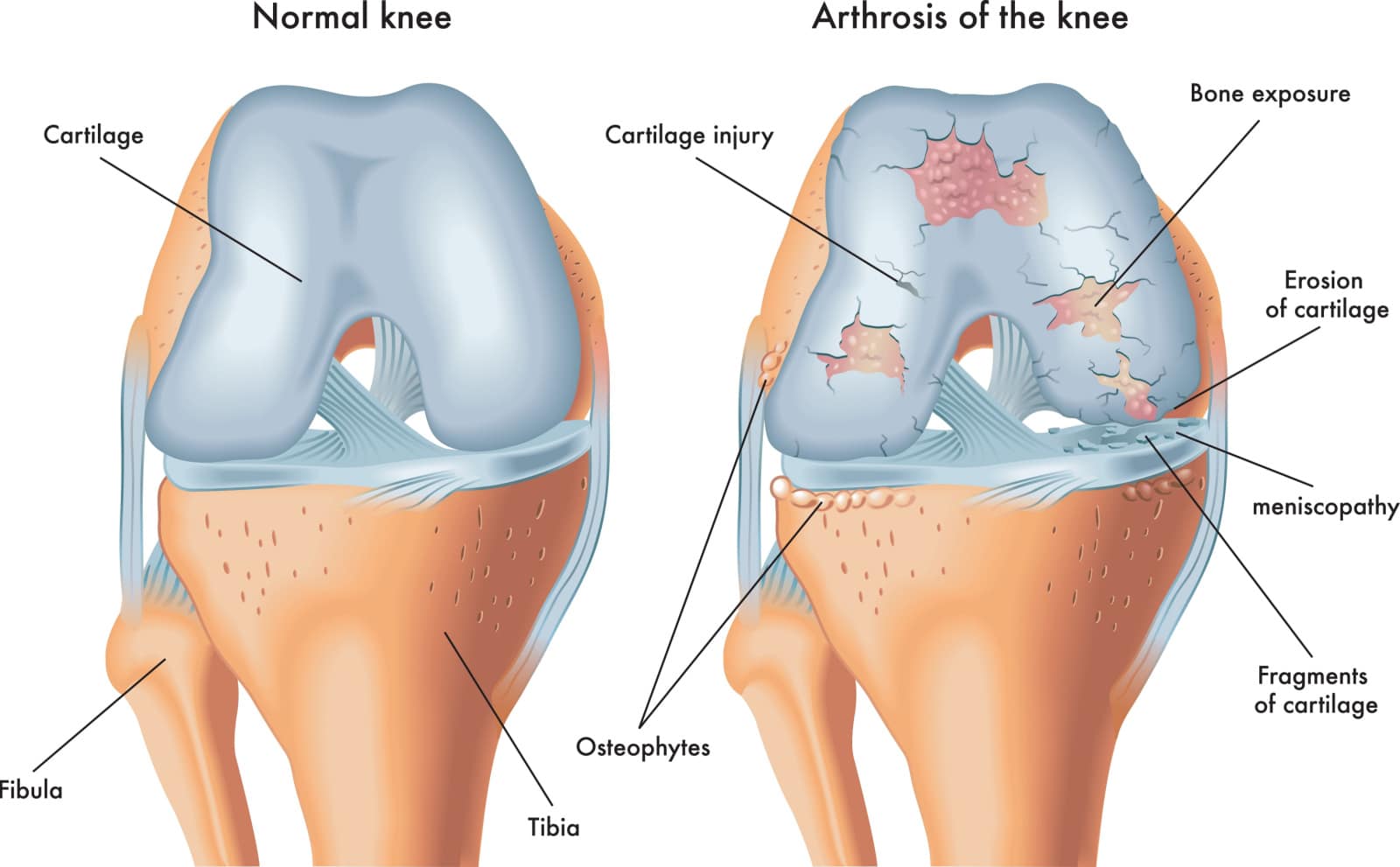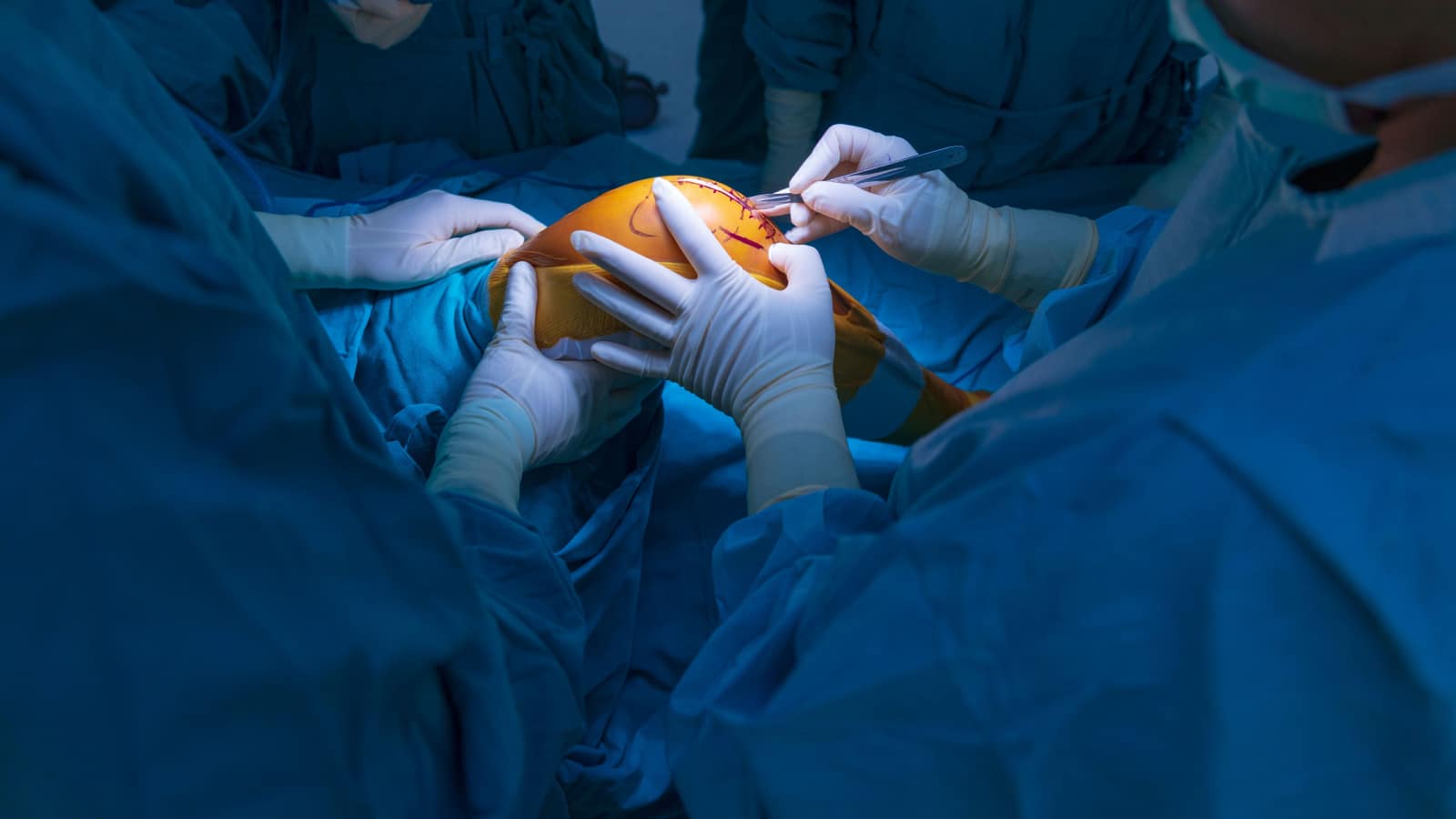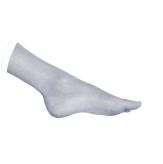
You have probably heard of total knee replacement surgery. But what is it? Why do people need it? What is the recovery process?
In this article, we explore total knee replacement surgery as a whole; we dive deep to help you understand all there is to know about total knee replacement surgery. Read on to find out all this information.
What is total knee replacement surgery?
Knee replacement surgery (also known as knee arthroplasty) is a common operation that involves replacing a damaged, worn, or diseased knee with an artificial joint. Total knee replacements are one of the most successful procedures in all of medicine.
The goal of knee replacement surgery is to resurface the parts of the knee joint that have been damaged, and to relieve knee pain that cannot be controlled by other, conservative treatments. Metal and high-grade plastic parts are used to resurface the ends of the bones that form the knee joint, along with the kneecap. This surgery may be considered for someone who has severe arthritis or a severe knee injury.
When is a total knee replacement surgery necessary?
Knee replacement surgery is usually necessary when the knee joint is worn or damaged so that your mobility is reduced, and you are in pain even while resting.
The most common reason for knee replacement surgery is osteoarthritis. Osteoarthritis, a degenerative joint disease that affects mostly middle-aged and older adults, may cause the breakdown of joint cartilage and adjacent bone in the knees.

There are other conditions that may also result in needing a knee replacement, including:
- Rheumatoid Arthritis
- Knee injury.
- Loss of cartilage.
- Abnormal bone growth.
- Haemophilia.
- Gout.
When treatments such as physiotherapy, and medicines such as steroids injections have not been effective in alleviating your symptoms, it may be time to consider knee replacement surgery.
If you experience any of the following or know of someone with the same conditions, it is probably the right time to see an orthopaedic specialist:
- Your knee movement is reduced due to pain and swelling.
- Your mobility is significantly reduced, and you find walking increasingly painful and limited.
- Your knee pain affects your sleep.
- Performing your daily tasks becomes very hard, such as doing the grocery shopping, walking the dog, going up and down stairs etc.
- When your morale levels are low, and your mental health is being affected by your pain and symptoms
- When your normal routine is disrupted such that, you can’t have a normal work and social life.
Although many patients having this surgery are aged 60+, knee replacement surgery is also considered for younger patients suffering from any of the above conditions and symptoms.
What are the types of total knee replacement surgeries?
There are two types of knee replacement surgeries.
- Half knee replacement – Also known as partial knee replacement. In this surgery, only one side of the knee is replaced, and the recovery time in the hospital is short.
- Full knee replacement – This is the type of knee surgery where both sides of the knee joints are replaced.
How do you get ready for total knee replacement surgery?
At your consultation with your knee consultant they will provide you with all the information you will need prior to surgery.
You need to stay as active as possible. If you can, continue to do gentle exercise, such as walking, cycling or swimming, in the weeks and months before your operation.
Your consultant will likely refer you to a physiotherapist, who will give you helpful exercises to help maintain your range of movement and lower leg strength. Strengthening the muscles around your knee will significantly aid your post op recovery.
There are also a few other important things that you need to think about before you go into surgery.
Although you will be able to walk with a cane, crutches, or a walker soon after surgery, you will need help for several weeks with such tasks as cooking, shopping, bathing, and doing laundry. A discharge planner at the hospital can help you make advance arrangements to ensure you have a plan in place for when you leave hospital.
You may also need to make some modifications at home and order equipment, to make your life easier during your recovery.
- Handrails along your stairways and in the bathroom
- A stable chair that is not too low, and a footstool for intermittent leg elevation
- A toilet seat riser if you have a low toilet
- A stable shower bench or chair for bathing
- Securing any loose carpets and electric cables
- Preparing a temporary living space on the ground floor until you feel confident to do the stairs
What happens during the operation?
A knee replacement is normally carried out under general anaesthetic (where you’ll be fully asleep) or with an epidural (you’re awake but can’t feel anything from the waist down).
Your knee will be in a bent position to expose all surfaces of the joint. Your surgeon will then make an incision about 6 to 10 inches long (15 to 25 centimetres), your kneecap is moved to the side and the damaged joint surfaces are cut away. After preparing the joint surfaces, the surgeon attaches the pieces of the artificial joint and then moves the joint to ensure that it glides smoothly and has a good range of movement before closing the incision. The surgery usually lasts about two hours.
After the procedure
You’ll be taken to a recovery room for one to two hours; how long you stay after surgery depends on your individual needs. The average length of stay in hospital following this type of surgery is 2 -3 days. Once you’ve left hospital, the wound will take about two weeks to heal.
Medications prescribed by your doctor will help control pain. Make sure that you take them regularly, as prescribed.
A physiotherapist will show you how to exercise your new knee in hospital and will get you up and walking – with a walking aid. After you leave the hospital, you’ll need to continue physiotherapy. If you already have a physio, you will need to return to see them a couple of weeks after surgery. If you would like us to refer you to someone, we work with a number of highly experienced physiotherapists, both in and out of London.
Do your exercises regularly, as instructed. For the best recovery, follow all of your post op care team’s instructions concerning wound care, diet and exercise.

What are some of the risks associated with total knee replacement surgery?
Knee replacement surgery is major surgery, and there is the possibility of complications. Your consultant will discuss all the potential risks with you at your consultation and make sure that you are fully involved in the decision to operate.
Why Choose London Bridge Orthopaedics?
Looking for the latest and most efficient orthopaedic services? We’ve got you covered.
London Bridge Orthopaedics is based in the United Kingdom, with our new headquarters at The Shard. We are a group of highly experienced and knowledgeable, specialist orthopaedic consultants. All our knee consultants continue to work at some of London’s most prestigious, teaching hospitals and are extremely highly regarded within their field.
There are 12 orthopaedic consultants within London Bridge Orthopaedics, and we cover all areas of the body and all orthopaedic conditions.
Our world class team offers exceptionally high standards of care that includes:
- A holistic approach to treatment
- Ensuring you as the patient feels informed and included in the decision-making process.
- Offering urgent appointments and full imaging service within the same facility.
- Offering personalised, patient-focused care that suits your needs.
- Performing surgical procedures only when essential, and conservative treatments have not been successful.
- Continual and consistent care ensures you make a full recovery and get back to full fitness and the activities that you enjoy.
- All consultants are covered by all major insurance companies.
Call us on 020 7692 0675 to book an appointment.











